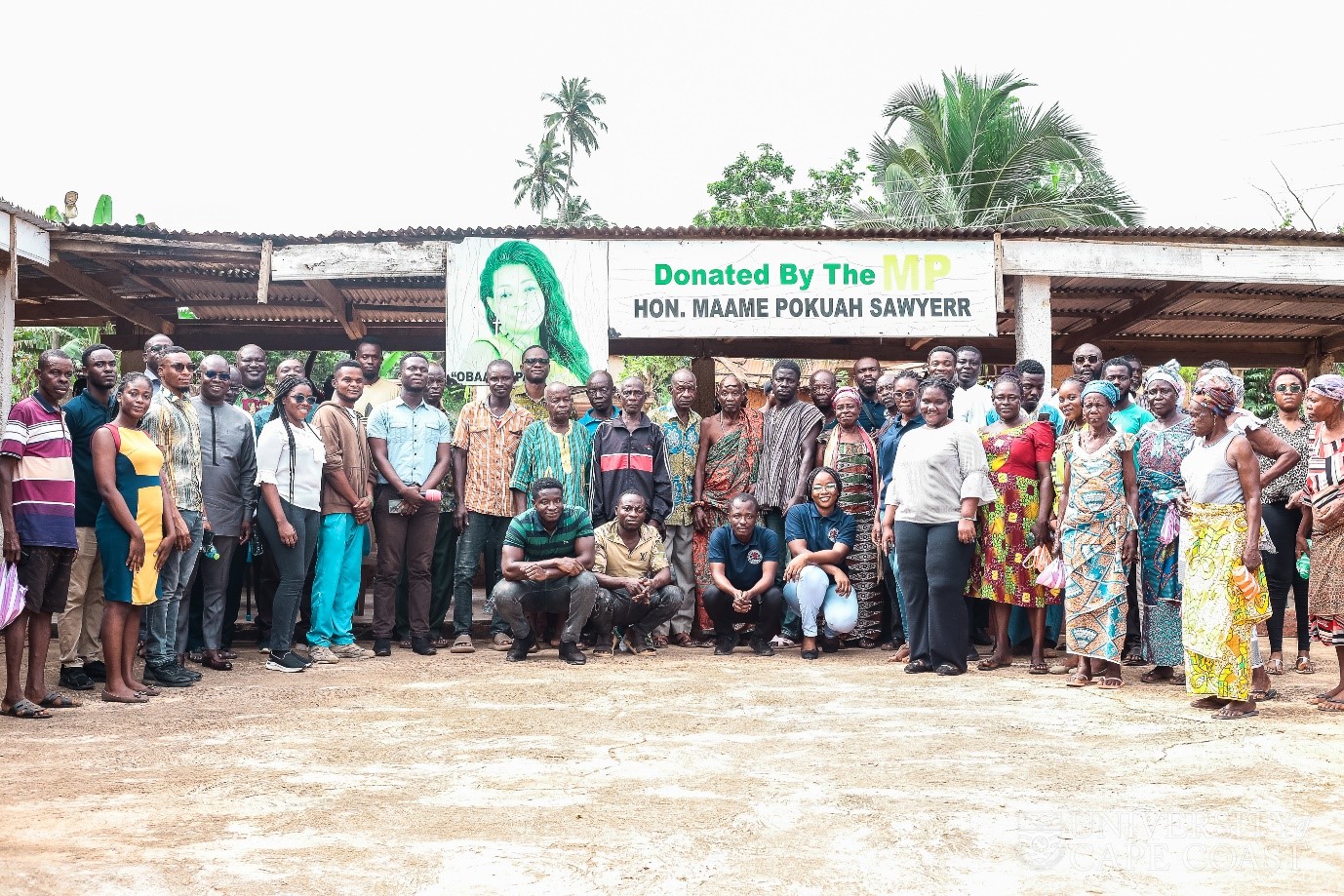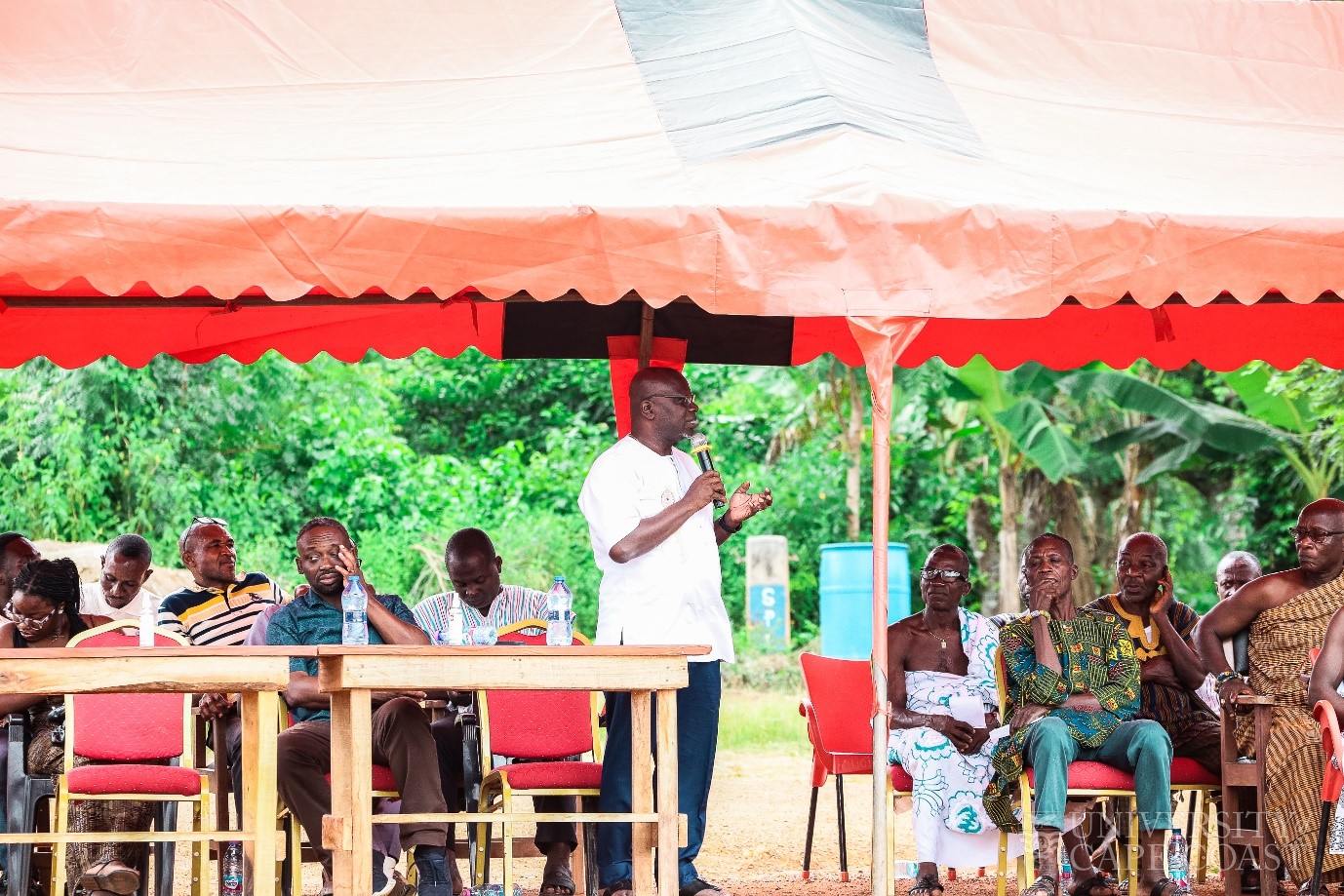The School of Medical Sciences (SMS) of the University of Cape Coast (UCC) has dispatched a total of eighty-four (84) medical students to the Agona East District of the Central Region for the Community-Based Experience and Service (COBES) programme.
COBES gives the students a strong community orientation which increases their awareness of the role of social, cultural and environmental factors in health and the relationship between health and development.
The programme forms part of the academic calendar of the SMS to allow students to learn and gain experience in combining academic work with practical community development and projects.
The theme for the programme “Social, cultural and environmental factors in health and disease” aimed to enable the students to appreciate the myriads of factors shaping the health and disease landscape of communities.
Chief of Mfantse Bawjiase Kokoado, one of the communities selected for the programme, interacting with some of the medical students
The medical students – all in Graduate Entry Medicine (GEM) Level 300 - were deployed to five communities, including Seth Okai, Agona Duoto, Namanwora, Mfantse Bawjiase Kokoado and Ninta for the exercise.
In the communities, the students undertook research and organised health education programmes, as well as free health screening for the rural folks.
The students also offered youth mentorship, behavioural change communication campaigns and supported CHPS compounds in the communities with their medical skills.
The students also donated medical items such as malaria test kits, cement, paints, sanitary pads, exercise books, veronica buckets, mosquito nets, roofing sheets and fertilizers among others to the community members.
Dean of the School of Medical Sciences, Professor Sebastian Eliason, addressing the gathering at Agona Duoto
Speaking at Agona Duoto, the Dean of the School of Medical Sciences, Professor Sebastian Eliason, noted that the impact the programme would have on the communities was very key and urged students to pay attention to what they would be doing in the various communities.
“It is not just about sending you here, but we are looking up for the impact, your contribution towards healthcare needs of the country is imperative for the socio-economic development”.
He advised the students to be of good behaviour during the programme and ensure that they were good ambassadors of the University in the various communities.
Individually, the chiefs in the various communities held durbars to welcome the medical students.
Some students at Namanwora performing a traditional dance during the durbar for the UCC medical students
For their part, the medical students promised to serve the communities selflessly.
Source: Documentation and Information Section-UCC




